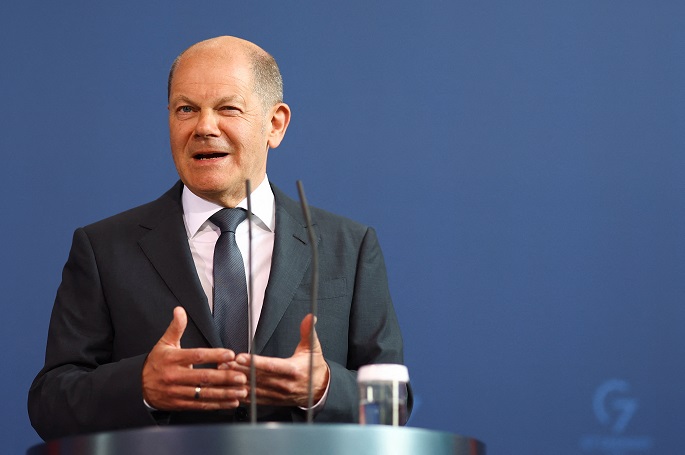Germany plans new routes for arms to Ukraine
Published : 21 Apr 2022, 21:34
The German government is preparing a three-way arms swap that will enable Ukraine to receive more heavier weaponry, sources told dpa, as Chancellor Olaf Scholz faces more calls to act faster to help Ukraine fight Russian forces.
The swap is part of Scholz's response to criticism - including from the leadership in Kiev, from Poland and from his political peers - that he has been holding back from supplying Ukraine with more powerful arms.
Polish Prime Minister Mateusz Morawiecki said on Thursday that he planned to tell Scholz personally how important it was to send heavy weapons to Ukraine. He would explain to Scholz, he said, that this was a turning point in European history.
"That's why it's important to give them ammunition and heavy equipment. The ambiguous position taken by Germany here is certainly not helpful," he said near Warsaw.
Germany is the world's fifth-largest arms exporter, but has traditionally had a restrictive policy on sending arms to conflict zones.
Although Berlin is now supplying large amounts of weaponry and ammunition directly to the Ukrainians, it has yet to authorize the delivery of tanks or warplanes from Germany.
The planned workaround involves NATO partner Slovenia, the sources told dpa. Slovenia would send a large number of its T-72 battle tanks to Ukraine; to replace these, Germany would then send Slovenia a number of Marder tanks and Fox wheeled tanks from its own supplies.
Defence Minister Christine Lambrecht confirmed on Thursday that Germany would train Ukrainian soldiers on how to use armoured howitzers.
The howitzers were however not coming from Germany, but from the Netherlands."Where we can provide training, we will," Lambrecht said.
Scholz had already put in motion another route for heavier weaponry to reach Ukraine, by offering to give Kiev money to order weapons from German manufacturers.
The list of available weaponry that Kiev can choose from does not, however, include tanks, helicopters or larger artillery.
Already under constant criticism from the opposition, Scholz on Thursday faced more calls from the ranks of his own coalition for a clearer decision on sending tanks.
Defence expert Alexander Müller from the Free Democrats - the smallest coalition party - told dpa on Thursday that "the German public has a right to know whether we are supplying heavy weapons, like our NATO partners are doing. To date, the German government's line is still unclear."
In the meantime, Germany has continued to treat injured patients from Ukrainian conflict zones at facilities throughout the country.
Some 42 such patients had been treated since the start of the war, the federal disaster management agency said on Thursday.


